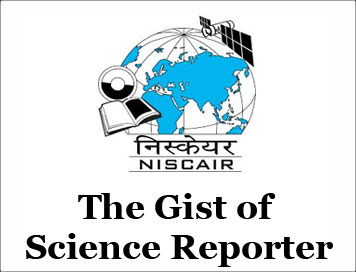(HOT) UPSC Current Affairs 2025 PDF
NEW! The Gist (NOV-2025) | E-BOOKS
(GIST OF SCIENCE REPORTER) Comprehensive National Space law
(GIST OF SCIENCE REPORTER) Comprehensive National Space law
(SEPTEMBER-2025)
Comprehensive National Space law
The Indian space programs are experiencing rapid growth marked by significant missions; however, in addition to technological advancements, the country is also prioritizing the establishment of a strong legal framework for space operations or activities.
Space Law
The United Nations office for outer space affairs (UNOOSA) states that space law includes a variety of international agreements, treaties, conventions, and United Nations General Assembly resolutions, as well as rules and regulations developed by international organizations.
Key Elements of Space Law (as per UNOOSA):
-
Use of outer space for peaceful purposes
-
Non-appropriation of outer space and celestial bodies by any one nation
-
Freedom of exploration and use of outer space by all countries
-
State responsibility and liability for national space activities (governmental or non-governmental)
-
Avoidance of harmful contamination of space and celestial bodies
Key highlights
-
Gap between Treaties and Law: India has ratified key UN space treaties like the Outer Space Treaty, Liability Convention, and Registration Convention. Yet, these international obligations require domestic legislation to be enforceable.
-
Limitations of Existing Regulatory Framework: Current policies—like the Indian Space Policy 2023, IN-SPACe Norms & Procedures (NPG), and the Catalogue of Standards—offer guidance but lack enforceable legal status. IN-SPACe, which plays a regulatory role, operates without statutory authority.
-
Regulatory Ambiguity and Fragmentation: Multiple ministries—Department of Space (DoS), Defence, Telecom, Commerce—are involved in space approvals, leading to overlaps, delays, and investor confusion.
Need for regulation amid growing commercial participation:
-
Licensing & Regulatory Authority (who can launch, with what timeline, under which criteria): IN-SPACe, the nodal body for private space activity approvals, currently functions without legal backing, making its decisions open to judicial challenge.
-
Liability & Insurance (defining clauses and financial responsibility): India is internationally liable for damage caused by its space objects—even if launched by private firms. Without legal norms, determining compensation and securing affordable insurance remains uncertain.
-
FDI Norms (potentially allowing 100% automatic route in satellite segments)
-
Intellectual Property Rights (to protect innovation): Unclear ownership rights and opaque FDI norms hinder innovation and discourage investment.
-
Space Debris Mitigation & Safety Protocols (technical and legal measures, cleanliness norms): Issues like debris mitigation, end-of-life disposal, and space traffic management remain unregulated.
National Space Law would:
-
Operationalize international commitments
-
Build investor confidence and attract capital
-
Enhance startup growth and curb brain drain
-
Provide responsibility clarity in case of accidents or orbital incidents
-
Support sustainable and secure development in line with global norms
Consequences of Legal Inadequacy
-
Investor Hesitancy: Lack of legal certainty and insurance mechanisms deter both domestic and foreign investment, potentially leading startups to relocate.
-
Geopolitical Vulnerability: Increasing space militarization, especially by other nations, underlines the need for legal clarity in India’s strategic domain.
-
Compliance Risks: A weak legal framework could lead to non-compliance with international obligations, exposing India to global legal repercussions.
Recommendations by experts & institutional analysts
-
Enact a National Space Activities Law: A statutory act to enshrine licensing procedures, liability norms, insurance mandates, IP protections, and debris regulation.
- Statutory Empowerment for IN‑SPACe: Grant independent legal authority to function as the single- window regulator with clear timelines and enforcement power.
CLICK HERE TO DOWNLOAD FULL PDF
CLICK HERE TO DOWNLOAD UPSC E-BOOKS
Study Material for UPSC General Studies Pre Cum Mains
Get The Gist 1 Year Subscription Online
Click Here to Download More Free Sample Material
<<Go Back To Main Page
Courtesy: Science Reporter



